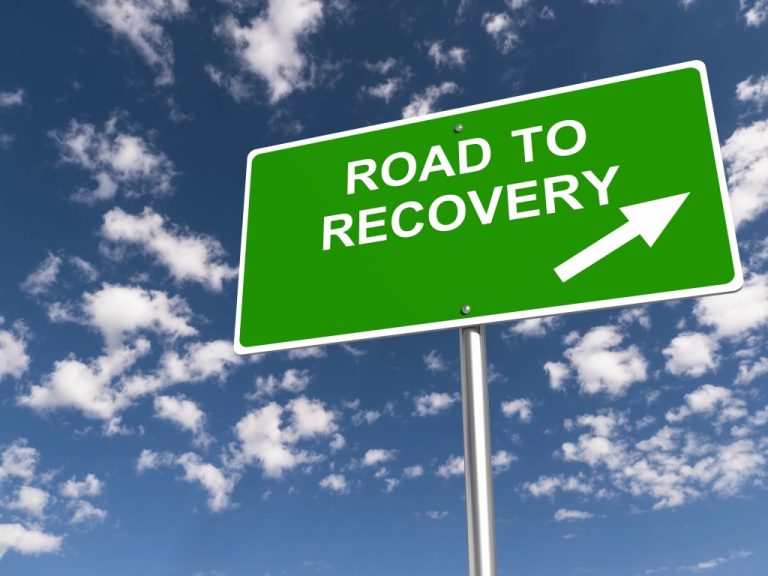Activities like group gratitude exercises or what is alcoholism volunteering help build a sense of belonging. This collective gratitude not only enhances individual recovery journeys but also strengthens community ties, encouraging a nurturing environment that supports recovery efforts. Expressing gratitude plays a critical role in enhancing social bonds vital for recovery. By thanking friends, family, or sponsors, individuals reinforce their connections. These positive interactions not only boost morale but also promote an atmosphere of trust and support.
Expressing thanks through acts of kindness or thank-you notes strengthens social bonds. Whether sending a heartfelt message to someone who has supported them or thanking a fellow recovery group member, these gestures nurture trust and empathy. Expressing gratitude can also encourage you to strive for improvement, as it reminds you of what you have already achieved and demonstrates how much more you can accomplish. By practicing gratitude during recovery, you not only boost your resilience in times of hardship but also lay the foundation for long-term success in all areas of life.
Recognizing these feelings as transient thoughts and sensations enables healthier choices and reduces impulsivity. Another effective technique is the body scan, which encourages a person to systematically observe physical sensations throughout their body, from head to toe. This helps develop a deeper awareness of bodily states, allowing individuals to recognize early signs of emotional or physical stress, and respond with acceptance rather than reaction. While in the throes of active addiction, the ability to experience gratitude may be diminished.
Gratitude in Recovery Journey
This accessibility means that even those with busy schedules or transportation challenges can consistently engage in therapy and practice these vital skills, including gratitude. It’s important to understand that the relationship you have with yourself will often be reflected in your relationships with others. Many in recovery, particularly those in early recovery, feel guilty for past mistakes and beat themselves up.
Stress Management
Mindfulness complements gratitude by encouraging present-moment awareness and emotional regulation. Techniques such as mindful meditation, body scans, and breathing exercises help manage triggers, intrusive thoughts, and emotional fluctuations. These practices support mental health by reducing anxiety, depression, and impulsivity, all common challenges faced during recovery. Research indicates that gratitude enhances mental health by reducing stress, anxiety, and depression.
- Keeping a gratitude journal involves writing down three to five things you are thankful for each day.
- Daily gratitude practices help lower symptoms of mental health disorders like major depression, allowing individuals to focus on uplifting aspects of their lives rather than their struggles.
- Incorporating techniques such as meditation, writing gratitude letters, or simply slowing down to savor positive experiences are effective strategies.
- In addition to its mental health benefits, expressing gratitude also promotes physiological changes that enhance well-being.
- Our Treatment Advisors are available 24 hours a day to help you or a loved one access care.
Focus on Language
I am installing a bath to give them water through the dry summer, feeders to invite them to dinner, and small houses to raise their children. Incorporating gratitude rituals into daily routines can help individuals develop a consistent and meaningful practice of gratitude. Stress and emotional turbulence are also common, particularly when facing setbacks or confronting difficult memories and feelings. Such emotional upheavals can disrupt the habit of gratitude, leading to frustration or despair. When we worry about relapse or feel resentment or other negative feelings creep in, it’s a great opportunity to cultivate gratitude.
In the grip of an addiction, it’s easy to feel victimized, angry, and trapped. As the addiction progresses, substance abusers find themselves losing many of the things they valued in their lives, such as relationships, jobs, and even homes. That leads to a cycle of despair, hopelessness, and other negative feelings, which in turn leads people to return to a dependence on addictive substances.
This combination helps individuals navigate setbacks as opportunities for growth and maintain motivation for sobriety. Additionally, gratitude enhances motivation to maintain accountability and commit to personal growth. Gratitude plays a crucial role in addiction recovery by providing essential mental and physical health benefits. Integrating gratitude into daily life can significantly enhance the recovery process. Understanding the feeling of gratitude in recovery provides individuals with tools to foster resilience and improve their overall well-being. Individuals in recovery can further enhance their support systems by engaging in community activities or support groups where gratitude is often shared and celebrated.
- Setting a specific time each day—like morning or evening—to reflect on gratitude can build consistency.
- Feeling grateful can help individuals shift their perspective from seeing setbacks as failures to viewing them as opportunities for growth.
- Engaging in this cycle fosters a deeper sense of gratitude, ultimately contributing to lasting well-being and sobriety.
Gratitude encourages individuals to acknowledge the support they receive from friends, family, and recovery communities. This acknowledgment helps to rebuild trust and strengthen bonds, creating a more nurturing environment. In addition, gratitude practices can assist in rebuilding relationships damaged by substance abuse.
When you do this, you’ll start to unconsciously and effortlessly practice gratitude throughout the day. It promotes self-awareness and humility, which are essential on the road to recovery. You need to foster as many positive thoughts as possible on your journey towards feeling grateful. This will be a big step in developing long-lasting happiness within yourself. These can lead to negative emotions like jealousy and anger, which you need to eliminate if you want to feel grateful.
We’re learning more each day.
When individuals recognize and appreciate the help they receive, it promotes forgiveness, healing, and a better reciprocal relationship. For instance, managers who express gratitude to employees report increased motivation and engagement, illustrating how appreciation can foster stronger connections. Gratitude helps individuals acknowledge the goodness in their lives, fostering connections to something larger than themselves.
Emotional and Mental Well-being
Amidst these obstacles, gratitude emerges gratitude in recovery as a powerful tool that can reshape the path to recovery. By focusing on gratitude, individuals can foster a more positive outlook, enhance mental well-being, and strengthen social connections, all of which contribute to a more successful recovery journey. This article explores how integrating gratitude into daily life can not only minimize relapse risks but also encourage personal growth and transformation. In the challenging journey of recovery from addiction and trauma, finding effective strategies to enhance well-being and sustain sobriety is crucial. Among these strategies, gratitude stands out as a transformative practice that can significantly impact individuals’ mental, emotional, and social health.
FURTHER READING...
Тамаша goldbet слоттары үшін промо-кодтар аквариум слоттары
December 20, 2025
Disco Win Online Casino Experience in the UK
December 20, 2025
Glücksspiel in Bayern: Die Geschichte der Spielbank Bad Kötzting
December 20, 2025
The Value of Free Stock Message Boards for Investors
December 20, 2025
Meilleures stratégies pour les jeux de hasard
December 18, 2025
La Ruta del Pollo en la Carrera de Apuestas Slots
December 18, 2025
Avia Masters: Verspillen Vliegtuigen Goud bij Slot Machines?
December 18, 2025
Grass Birth Saskatoon, Regina Purchase Marijuana On the web Saskatchewan
September 18, 2025
Latest - post
Category
- ! Без рубрики (4)
- 10Mostbet (1)
- 11Mostbet (1)
- 12Mostbet (1)
- 1betcasinoitalia.com (1)
- 1Mostbet (1)
- 1xbet1 (1)
- 1xbet10 (1)
- 1xbet11 (1)
- 1xbet12 (1)
- 1xbet2 (2)
- 1xbet3 (1)
- 1xbet4 (1)
- 1xbet5 (2)
- 1xbet6 (1)
- 1xbet7 (2)
- 1xbet9 (1)
- 1xcasinoespana.com (1)
- 20betcasinoitalia.com (1)
- 21-casino.us (1)
- 2Mostbet (1)
- 32red-casino-uk.uk (1)
- 3Mostbet (1)
- 4Mostbet (1)
- 500casinodk.com (1)
- 500casinono.com (1)
- 5Mostbet (1)
- 7bet-no.com (1)
- 7betcasinoit.com (1)
- 7Mostbet (1)
- 8888casinobrasil.com (1)
- 888casinocanada.net (1)
- 8Mostbet (1)
- 9Mostbet (1)
- a16z generative ai (4)
- a16z generative ai 1 (2)
- admiralbetcasinoitalia.com (1)
- admiralcasinodeutschland.com (1)
- Ai News 2025 (1)
- allinbetcasinoitalia.com (1)
- Android (1)
- answer (19)
- answers (23)
- APK (2)
- Arts & Entertainment, Celebrities (1)
- ballycasinocanada.com (1)
- bc-game-france.com (1)
- bc-game-uk.uk (1)
- bcgame-turkiye.com (1)
- bcgame2 (1)
- bcgame26011 (1)
- bcgameaustralia.com (1)
- bcgamee-ro.com (1)
- bcgameportugal.com (1)
- bestcasino (1)
- bestcasinos1 (1)
- bet-passioncasinoitalia.com (1)
- betandreas2 (1)
- betandreas3 (1)
- betandres4 (1)
- betcasino1 (5)
- betcasino1701 (1)
- betcasino2 (2)
- betcasino3 (3)
- betcasino4 (2)
- betcasino5 (1)
- betcasino6 (1)
- betfredcasino.us (1)
- betifycasinoitalia.net (1)
- betssondk.com (1)
- betssonlt.com (1)
- bettingcasino1 (1)
- bettingcasino2 (1)
- bettingcasino3 (1)
- bettingcasino4 (1)
- bettingcasino5 (1)
- bettycasinocanada.org (1)
- betwiner1 (1)
- betwinner2 (2)
- bigbooscasinocanada.com (1)
- bigboostcasinoindia.com (1)
- bitcoins casino (1)
- blog (1,283)
- bobcasinofr.com (1)
- Bookkeeping (5)
- bookmakers1 (1)
- boomerang-casino-de.net (1)
- boomerangcasino-espana.com (1)
- boylecasinoie.com (1)
- boylesports-ireland.com (1)
- br-333casino.com (1)
- Business (21)
- bwin-casino.us (1)
- bwincasinobr.net (1)
- captaincookscasinocanada.net (1)
- casa-pariurilor.uk (1)
- casapariurilor-hungary.com (1)
- casapariurilor-it.com (1)
- casapariurilor-nl.com (1)
- casapariurilor.us (1)
- casimbacasino.uk (1)
- casimbacasino.us (1)
- Casino (43)
- casino-lab-fr.com (1)
- casino01261 (1)
- casino01262 (1)
- casino01263 (1)
- casino01264 (1)
- casino01265 (1)
- casino01266 (1)
- casino140126 (1)
- casino1601 (1)
- casino17011 (1)
- casino17012 (1)
- casino18012 (1)
- casino21014 (1)
- casino21015 (1)
- casino22016 (1)
- casinobest1 (1)
- casinobest2 (1)
- casinobet1 (1)
- casinobet2 (1)
- casinobet3 (1)
- casinobet31 (1)
- casinobet33 (1)
- casinocz1 (1)
- casinogame1 (1)
- casinogame2 (1)
- casinogame3 (1)
- casinogame4 (1)
- casinojaya9 (1)
- casinoslot4 (1)
- casinoslot5 (1)
- casinoudenrofus (1)
- casumocasino-nz.com (1)
- cityoflondonmile (1)
- ck999 (4)
- cocoacasinosouthafrica.com (1)
- Computers, Games (1)
- coral-casinouk.uk (1)
- cosmocasinonz.com (1)
- dashbetethiopia.com (1)
- dating (7)
- davinci-goldcasino.us (1)
- daznbetdeutschland.com (1)
- daznbetitalia.com (1)
- diplomm-i1 (1)
- diplomm-i2 (1)
- diplomrums1 (2)
- diplomrums3 (1)
- domusbetcasinoitalia.net (1)
- dragonmoney3 (1)
- egu-diplom1 (1)
- egu-diplom2 (1)
- egu-diplom3 (1)
- EN (2)
- energycasinofi.com (1)
- enrachacasinoespana.com (1)
- Environment (8)
- fastbetcasinoitalia.com (1)
- Finance, Credit (1)
- Finance, Currency Trading (1)
- Finance, Investing (1)
- Finance, Loans (1)
- fivebetcasinoitalia.com (1)
- Forex Trading (2)
- fortuna-casinopl.com (1)
- fortunacasino.uk (1)
- fortunacasinocz.com (1)
- forum (1)
- FreeSpinscasino1 (1)
- freshcasinobrasil.com (1)
- freshcasinode.com (1)
- fun-casino.us (1)
- fun-casinouk.uk (1)
- galabingoo.us (1)
- gamdom-ro.com (1)
- gamdom-uk.uk (1)
- gamdomaustria.com (1)
- gamdomcanada.com (1)
- gamdomdanmark.com (1)
- gamdomportugal.com (1)
- game, ck999 (3)
- Games (6)
- GamStopCasinos1 (1)
- gemes, casino (8)
- gokspel (1)
- goldenbet-angola.com (1)
- goldenbetsv.com (1)
- google bard ai launch date 1 (1)
- gosz-diplomas3 (1)
- gosz-diplomas4 (1)
- gosz-diplomas6 (1)
- gratoganacasinoespana.com (1)
- gutscasinonz.net (1)
- hellspin-casino-canada.com (1)
- Home (191)
- Home & Family, Home Improvement (1)
- hypercasino-fr.com (1)
- info (5)
- intensecasinoitalia.com (1)
- Internet Business, Audio-Video Streaming (1)
- Internet Business, Ecommerce (1)
- Internet Business, Email Marketing (2)
- Internet Business, Security (1)
- Internet Business, Web Design (1)
- IPTV (1)
- isitfair (1)
- jackpot-village-uk.uk (1)
- jaya91 (2)
- jaya92 (1)
- Jeux (3)
- jos-trust1 (1)
- jos-trust2 (1)
- joya93 (1)
- karambacasino.us (1)
- kingmakercasinoespana.net (1)
- ladbrokescasinous.us (1)
- legianocasinoespana.com (1)
- lottoland-uk.uk (1)
- lottolandcasino.us (1)
- luckiacasinoespana.com (1)
- luckydreamsaustria.com (1)
- luckyvip-id.com (1)
- luxurycasinonz.net (1)
- magicredcasinode.com (1)
- marketasdiplomas1 (1)
- marketasdiplomas2 (1)
- marketasdiplomas3 (1)
- Marketing (11)
- maxbetcasinoitalia.com (1)
- Medical (11)
- mega-casinobangladesh.com (2)
- megacasinoespana.com (1)
- megaparicasinoitalia.com (1)
- meilleur-casino.uk (1)
- meilleurcasinoenlignefrance.net (1)
- melbet-egypt-online.net (1)
- melbet-uzonline.com (1)
- melbetbrasil.net (1)
- melbetcamerounonline.com (1)
- melbetespana.net (1)
- melbetkz.net (1)
- million-casino-fr.com (1)
- million-casino-nl.com (1)
- millioncasinoromania.com (1)
- Mostbet (2)
- mostbet скачать (1)
- mostbet скачать ru (1)
- mostbet1 (1)
- mostbet3 (1)
- mostbetcasino-bangladesh.com (1)
- mostbetcasinode.com (1)
- mostbetcasinoportugal.com (1)
- mrgreencasino.uk (1)
- mrgreencasinodk.com (1)
- mrpunter-uk.uk (1)
- mrq-casino.us (1)
- mummysgoldcasinonz.net (1)
- mystakecasino.us (1)
- mystakecasinofrance.net (1)
- netbetcasinofinland.com (1)
- News (20)
- news2026 (3)
- newvegascasino.us (1)
- newvegascasinoes.com (1)
- newvegascasinoespana.com (1)
- NL (1)
- NonGamStopCasinos (1)
- novibetcasinoitalia.com (1)
- nyspins-casino-uk.uk (1)
- olybetcasinoitalia.com (1)
- onecasinonz.org (1)
- oneplaycasinoespana.com (1)
- onlinecasino1 (1)
- onlinecasino1401 (1)
- onlinecasino2 (1)
- onlinecasinoslot1 (1)
- onlinecasinoslot13 (1)
- onlinecasinoslot14 (1)
- onlinecasinoslot15 (1)
- onlinecasinoslot16 (1)
- onlinecasinoslot18 (1)
- onlinecasinoslot19 (1)
- onlinecasinoslot2 (1)
- onlinecasinoslot20 (1)
- onlinecasinoslot23 (1)
- onlinecasinoslot24 (1)
- onlinecasinoslot26 (1)
- onlinecasinoslot27 (1)
- onlinecasinoslot28 (1)
- onlinecasinoslot29 (1)
- onlinecasinoslot3 (1)
- onlinecasinoslot30 (1)
- onlinecasinoslot31 (1)
- onlinecasinoslot32 (1)
- onlinecasinoslot34 (1)
- onlinecasinoslot35 (1)
- onlinecasinoslot36 (1)
- onlinecasinoslot37 (1)
- onlinecasinoslot39 (1)
- onlinecasinoslot4 (1)
- onlinecasinoslot40 (1)
- onlinecasinoslot41 (1)
- onlinecasinoslot5 (1)
- onlinecasinoslot6 (1)
- onlinecasinoslot7 (1)
- onlinecasinoslot8 (1)
- onlinemarriageregistration.com x (1)
- paradise8-casino.uk (1)
- paradise8-casino.us (1)
- parimatch-us.us (1)
- parimatchbrasil.net (1)
- parimatchcanada.net (1)
- pauseandplaycasinoespana.com (1)
- pin-up-casinouzbekistan.com (1)
- pin-up-kzcasino.com (1)
- pinco-casino-downloads.top (1)
- pinco-cazino-login.top (second pack) (1)
- pinup-cazino-kz.top (1)
- pinup-kazakhstan-kk.top (1)
- pinup-kazino-kz.top (1)
- pinup-kazino-login.top (1)
- pinup-kz-officiall.top (1)
- pinup-official-kz.top 3 (1)
- pinup-zerkalo2026.top (1)
- platincasinoespana.com (1)
- playzee.uk (1)
- plexbetcasinoitalia.com (1)
- plinko_pl (2)
- plinkogamecasino.cc (1)
- Post (4)
- princess-casino.uk (1)
- princesscasino.us (1)
- princesscasinofr.com (1)
- real money pokies apps (2)
- Relationship (10)
- rizkcasino-canada.com (1)
- rizkcasino.uk (1)
- rizkcasinoat.com (1)
- rizkcasinosuomi.com (1)
- rocketplaycasinocanada.net (1)
- rollbitcanada.com (1)
- rollbitcasino.uk (1)
- rollbitdeutschland.com (1)
- rollbitlithuania.com (1)
- rooli-casinonz.net (1)
- rubyfortunecasinonz.net (1)
- Self Improvement, Coaching (1)
- selust.com 1000 (1)
- shuffle-casino.uk (1)
- siti-scommesse2 (1)
- sky-casino-uk.uk (1)
- skybet-turkey.com (1)
- skybetcasinoitalia.com (1)
- slotcasini1 (1)
- Slots (13)
- slovenska-casina1 (1)
- slovenska-casina2 (1)
- slovenska-casina3 (1)
- snaicasinoitalia.com (1)
- Sober Living (2)
- Software (1)
- spain (27)
- spel (1)
- Spellen (5)
- spillen (1)
- spinangacasinoespana.com (1)
- Sportwetten1 (1)
- stakecasinoitalia.net (1)
- sunaonal.com 1000 (1)
- superbetcasinosouthafrica.com (1)
- sushi 17 (1)
- sweet-bonanza-france.com (1)
- sweet-bonanza-italy.com (1)
- sweet-bonanza-romania.com (1)
- Television (1)
- Test (1)
- thephonecasino.us (1)
- thisisvegascasinode.com (1)
- tombola-chile.com (1)
- tombola-in.com (1)
- tombola-us.us (1)
- tombolaargentina.com (1)
- tomboladanmark.com (1)
- tombolaes.com (1)
- tombolait.com (1)
- total-casino-de.com (1)
- total-casinouk.uk (1)
- travel (2)
- truefortunecasinode.com (1)
- Uncategorized (1)
- uncategorized (22)
- unibet-uk.uk (1)
- unibetbulgaria.com (1)
- unibeteesti.net (1)
- unibetit.net (1)
- unibetnorge.net (1)
- unibetschweiz.com (1)
- vavada-austria.com (1)
- vavada-finland.net (1)
- vavada-italia.com (1)
- vavadalv.net (1)
- vbet-france.net (1)
- vbet-sverige.net (1)
- vbet-tr.net (1)
- vbetdeutschland.com (1)
- vbetromania.org (1)
- videoslotscasinose.com (1)
- villentocasinonz.net (1)
- vlad-casino-de.com (1)
- vnebetcasinoitalia.com (1)
- vodds (1)
- voodoodreamssuomi.com (1)
- vulkan-vegas (2)
- wazambacasinoespana.net (1)
- wheelzcasinonz.net (1)
- wildzcasinocanada.org (1)
- williamcasinoespana.com (1)
- winbet-brasil.net (1)
- winbet-casino.us (1)
- winbet-france.com (1)
- winbet-ireland.com (1)
- winner-casino-ro.com (1)
- winuniquecasinoespana.com (1)
- yaasscasinoespana.com (1)
- yocasinocasinoespana.com (1)
- Новости Криптовалют (1)
- Новости Форекс (1)
- Финтех (1)
- Форекс Брокеры (3)







